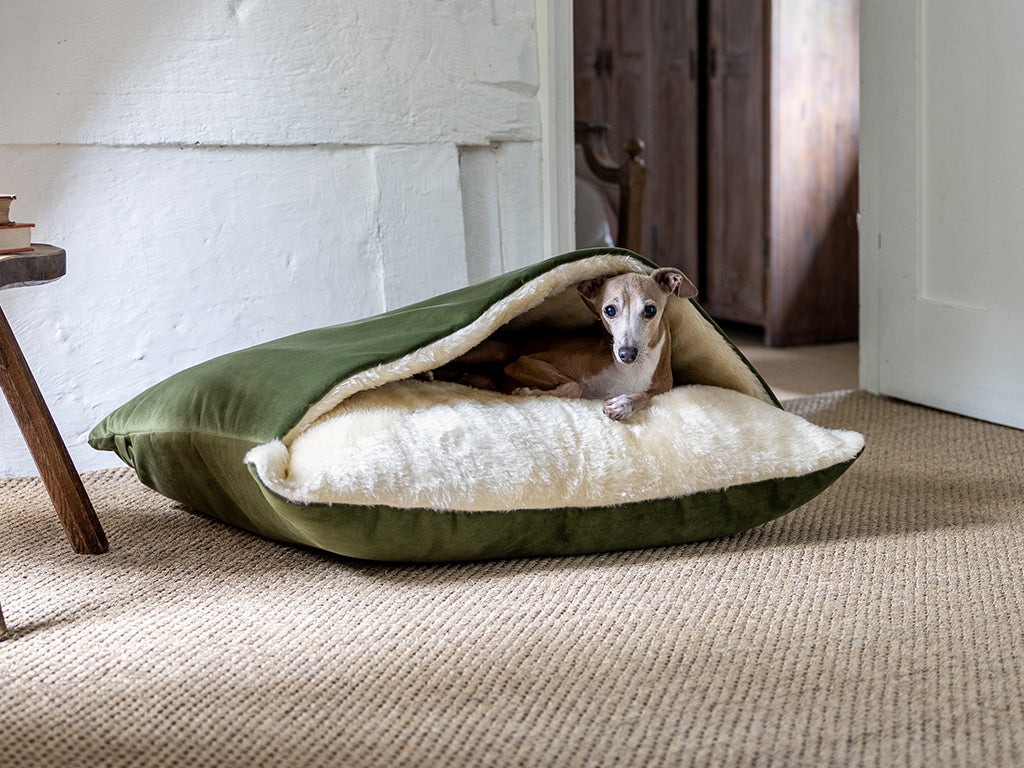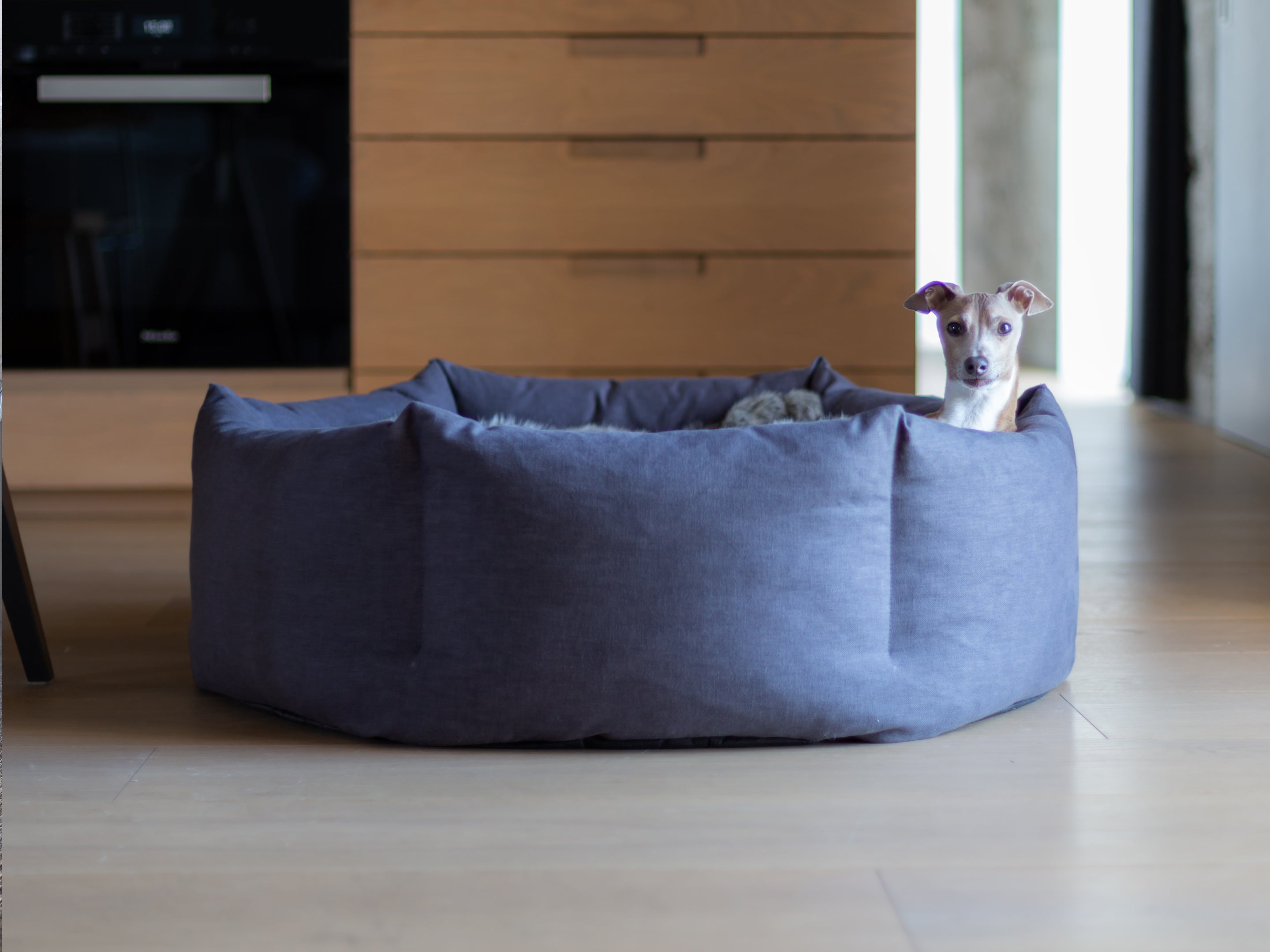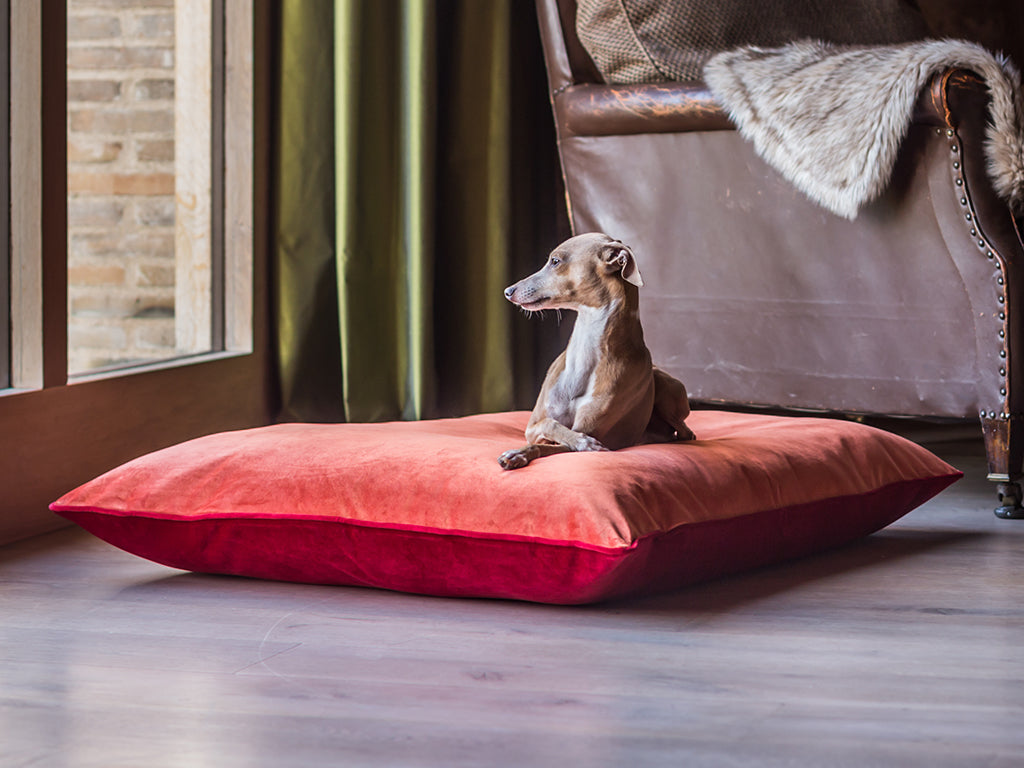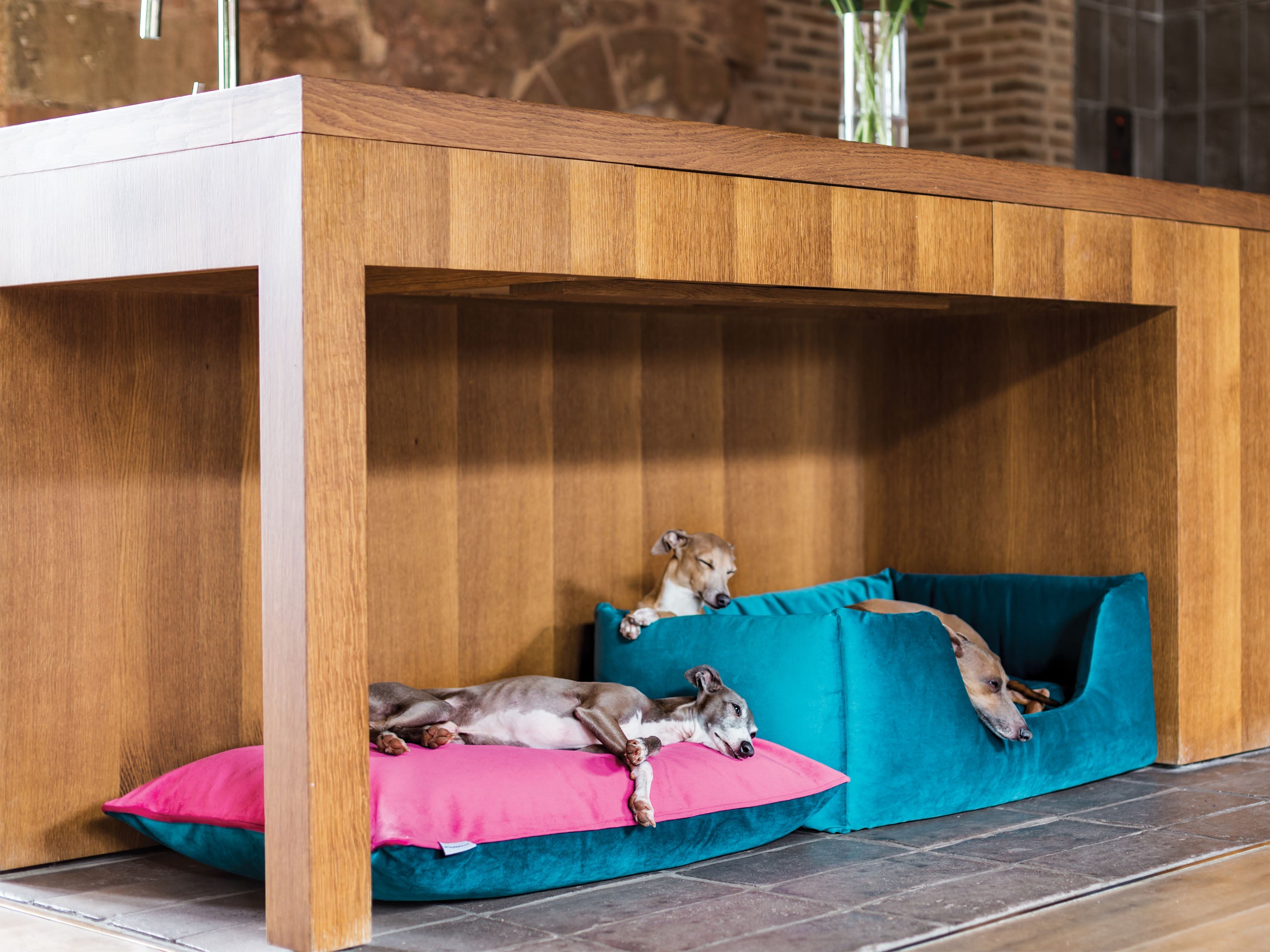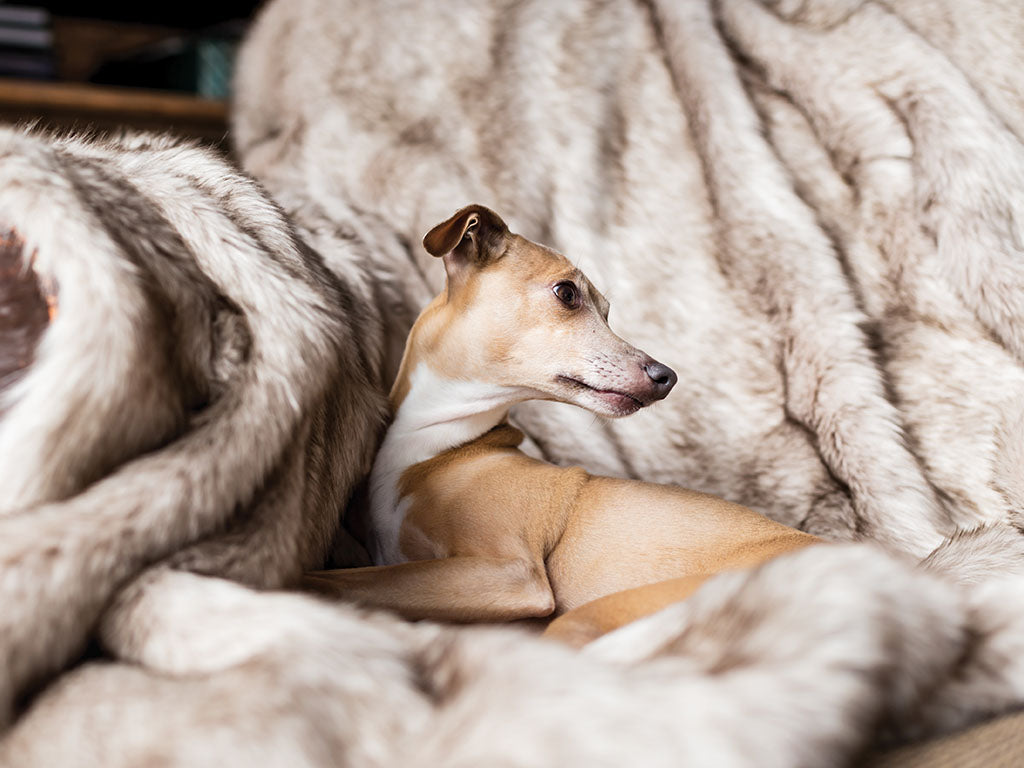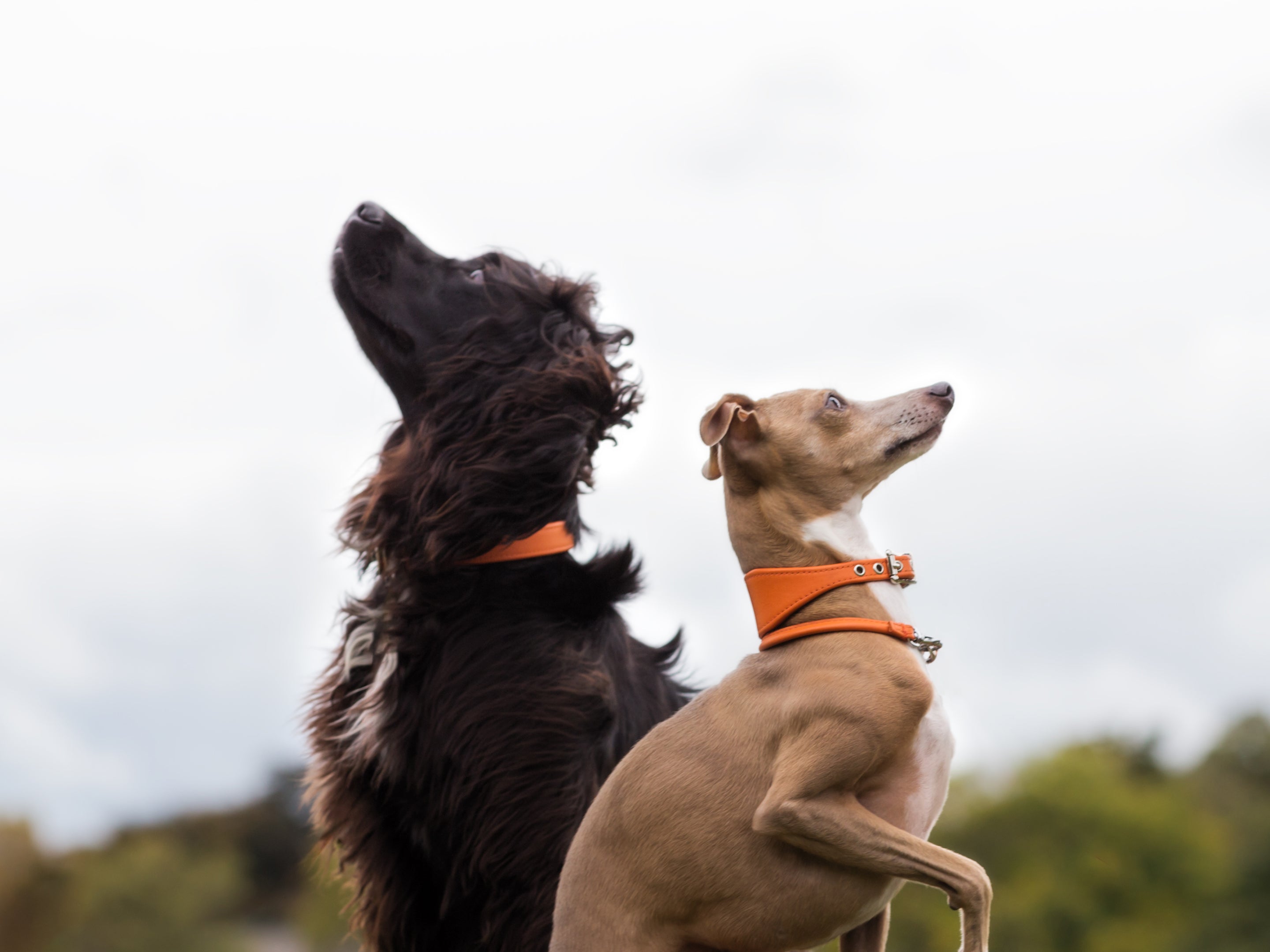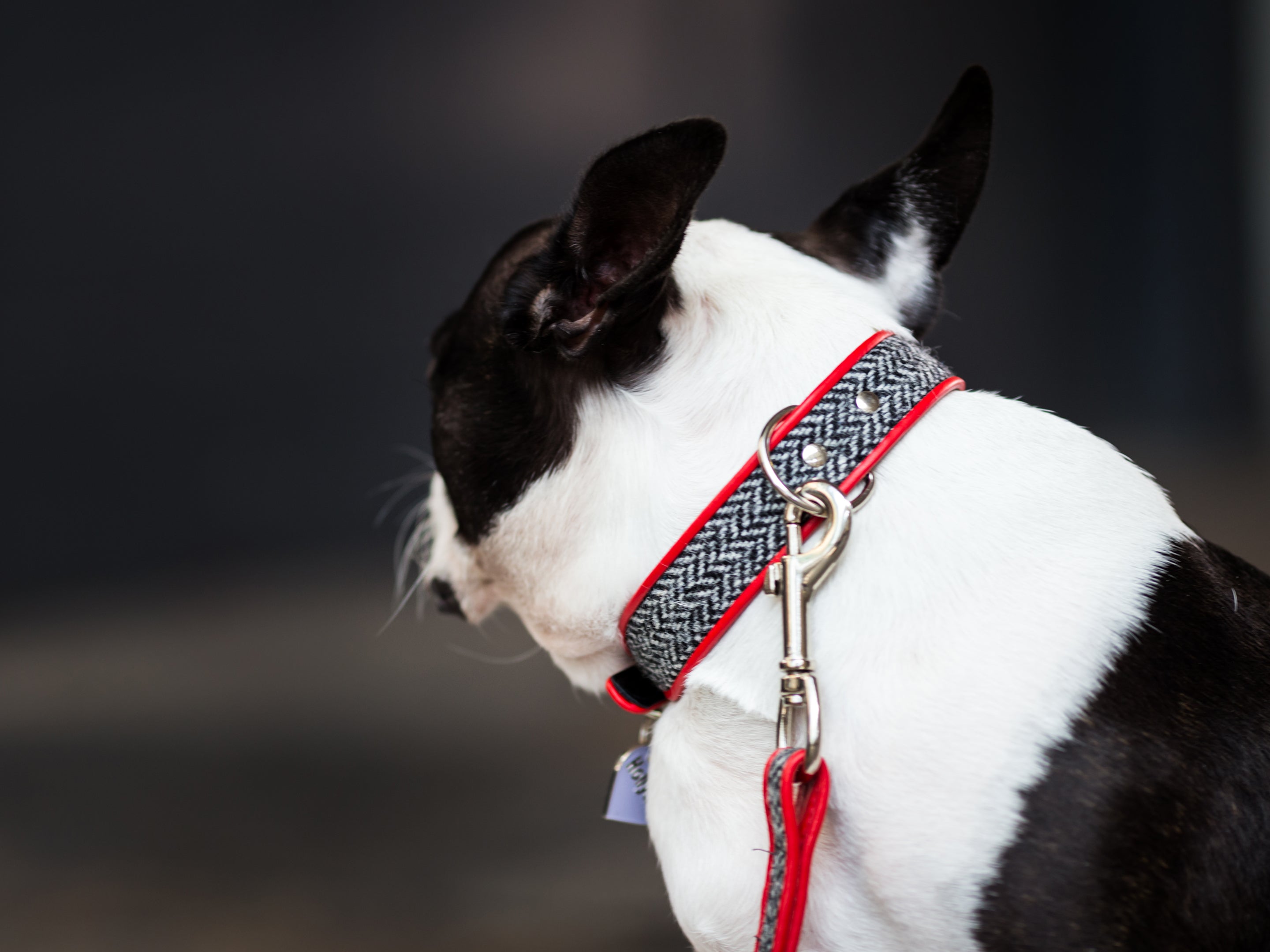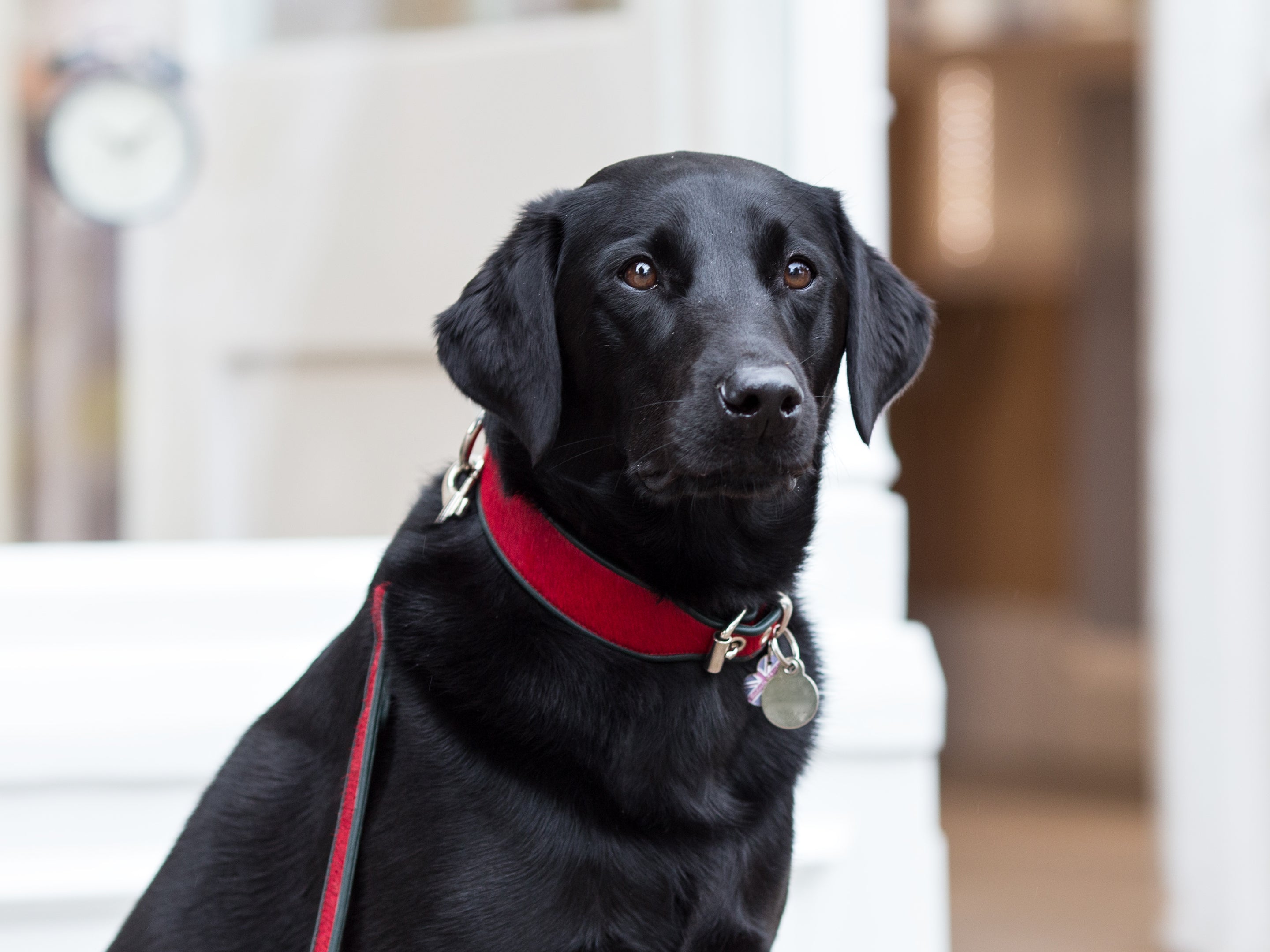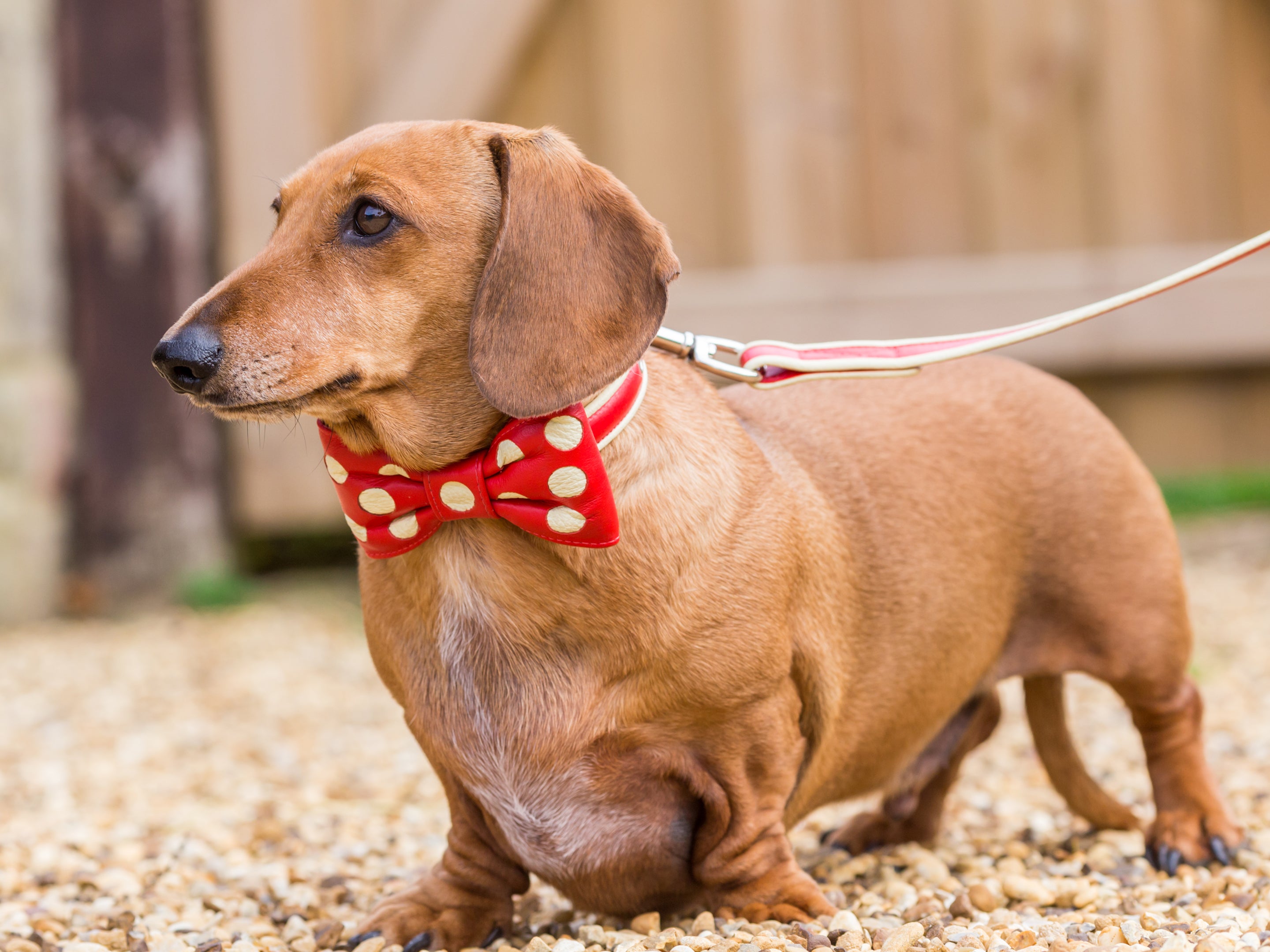Canine emotional well-being: Does your dog need a job? Does your dog want a job? Two very different questions!
The last post in our series to mark the week of Love Your Pet Day - all about different aspects of the emotional well-being of dogs by canine behaviour expert, Penel Malby. Over to Penel ...
Whether you have a Cavalier King Charles Spaniel bred as a companion to royalty, or a Jack Russell Terrier bred to hunt and kill vermin, or a Keeshond bred to guard barges in Holland, there's no doubt that originally, all our dogs were bred for a purpose.
 Most dog people recognise a Husky - originally from Siberia and bred as working sled dogs for the harsh, cold Siberian climate, then introduced to North America via Alaska during the Gold Rush to work the mining fields.
Most dog people recognise a Husky - originally from Siberia and bred as working sled dogs for the harsh, cold Siberian climate, then introduced to North America via Alaska during the Gold Rush to work the mining fields.
It's only in recent times that dogs have been bred as companions with no actual job. It stands to reason (or does it? - see below) that most dogs will enjoy doing the purpose that they were bred for, but, nowadays, comparatively few dogs have access to this, of course there are still working sheepdogs and working gundogs, and even working terriers and lurchers. But what do you do with your Cockapoo or your Labradoodle? NB: all of their ancestors would have been working dogs too!
Hobson & Elmo (English Setters) and Birdie (Labrador) on the beach. Hobson and Elmo are doing what comes naturally - "setting" the birds.
Out of my adult lifetime (so far) of 11 dogs, I've had such a variety of personalities who've enjoyed different activities. My first two Cocker Spaniels both did fun agility and loved it! My three setters have been very sociable with people and other dogs and have loved walking around the village saying hello to people. Hobson setter who is 4 years old, is at the start of his therapy dog career. Hattie my Working Cocker Spaniel, loved doing anything physically active with me, swimming, running alongside my bike, fun agility, scentwork.

Hattie, indicating whilst doing scentwork
Barley and Gracie the Lurchers were also very people friendly – going to the pub or a cafe (as long as something soft to lay on!) would have been their idea of fun, as well as coming to work with me when I was a dog trainer. Figgis, Cocker, also loved going to work with me, he loved other dogs and going out and about. Morris always really enjoyed his off lead walks, he never wanted to be particularly sociable with new dogs or with people, so we simply didn't do it. He found car travel stressful and was anxious in new places, so we lived (willingly) in his bubble for 14 years and made sure he was as happy as he could be.
 Collies are well known for their herding instincts and as pet dogs, many Collies display those herding instincts, even herding their human family but the instinct is stronger in some Collies than others.
Collies are well known for their herding instincts and as pet dogs, many Collies display those herding instincts, even herding their human family but the instinct is stronger in some Collies than others.
However, not all dogs have read the ‘breed traits manual’! Just because you have a Collie, does not mean they want to work sheep or do agility, just because you have a Labrador does not mean they want to be a gundog – although of course plenty do! We have to be watchful and observant and be sure that we are doing what's right for each dog.
Our working type Labrador, Birdie, is crazy keen on scentwork. I work with her on our walks, and loves doing her 1-2-1 class. She's anxious around other dogs so we don't do group classes as it would be too stressful for her.
Many people have told me they think I should do gundog work, agility or canine hoopers with Birdie as she's physically super fit and she's very easy to train – however, doing something that would ramp up her arousal, especially around other dogs, isn't ideal for her personality type, she would find it so stressful, she doesn't need winding up, she needs calming activities, which is why we do scentwork – and her focus while she is there, is unbelievable – finding tiny, tiny items in a huge barn.
Remember though, it is absolutely fine if your dog wants to go for a sniffy walk, and stay at home, or go and visit your Aunty, or go for a walk with their one doggy friend. My Mum had several rescued Cavaliers, all ex puppy farm breeding bitches and they were really shy and worried about the world, so we let them choose, if they wanted to go out that day, or if they wanted to stay home and in the garden, then that was what we did. Nowadays of course, we have freedom fields, open spaces you can rent for an hour, all safely fenced in, these have been life changing for many dogs and their pet parents - being able to lark around for an hour without being worried by other dogs is a great relief sometimes.
If you do have a dog who might enjoy doing 'something' what could you do together?
 There are so many canine activites that you can do with your dog to tap into their likes and natural needs to enrich their lives and make them happy. This is canine hoopers - a spin off from agility without any jumping.
There are so many canine activites that you can do with your dog to tap into their likes and natural needs to enrich their lives and make them happy. This is canine hoopers - a spin off from agility without any jumping.
Dog training classes can cover so many different types of dog activities. It's important that you find a teacher who trains in a kind, positive way. Avoid anyone who talks about dominance, pack theory and doesn't like using rewards (toys or treats).
- Scent work
- Mantrailing (tracking people)
- Obedience
- Agility
- Flyball
- Canine Hoopers (sort of like agility but no jumping)
- Search and Rescue
- Canicross (running with your dog attached to you)
- Therapy dog - see Therapy Dogs Nationwide or Pets as Therapy
- Going to a cafe or a pub and socialising
- Visiting pet shops or dog friendly garden centres
- Field trials
- Working trials
- Hydrotherapy (swimming)
- Paddleboarding
- Tricks classes
- Heelwork to Music
Many of the above can be one to one as well as group classes so don't be put off by the thought of a class if your dog isn't keen on group activities. Give the instructor a call and see if they do 1-2-1 sessions. Charley Chau wrote a blog recently going into a bit more detail on a few of the above: Five Ideas For You & Your Dog.
If you arrive somewhere and your dog doesn’t want to do it, re-evaluate, think about why they don’t want to do it. Carefully consider if you are putting their needs first and, if at first you try something and it doesn’t work out, there’s nothing wrong with walking away and trying a different activity together. There’s also nothing wrong with living with your dog like we did with Morris, for 15 years and not doing any particular activity apart from walking, running and snuggling at home!
So, as with everything we do with our dogs, it’s good to regularly re-evaluate their emotional state to check what we are doing together makes them happy. The longer you live with a dog, the easier it becomes to recognise, so if you have a new rescue dog, take it slow, there is no need to rush into anything, the most important thing is your relationship with your dog and building trust so they know whatever you are doing together they will be happy and safe.
© Penel Malby 2023
Read all of the fantastic insight that Penel has shared in this series on canine emotional well-being to mark Love Your Pet Day.
About Penel
Penel Malby is canine behaviour expert, writer, phoographer, and all round dog enthusiast who lives in Norfolk with her husband and English Setters Hobson and Elmo, and Birdie the Labrador. Penel trained dogs and cats on movie sets for the first 10 years of her career as a dog trainer and behaviourist, before co-founding a renowned dog training and behaviour company in Surrey as a member of PACT and the ABTC. Many dog lovers have seen some of Penel's other dog-related work as she was the cover photographer for Dogs Today and Dogs Monthly magazines for many years. Penel writes on many subjects to do with dogs with the intention of making both the lives of dogs and their owners better.
 Usually found walking with her dogs along the beaches and through the woods of Norfolk near her home, Penel runs an English Setter training group on Facebook and you can follow Penel and her gang at The Daily Hobson.
Usually found walking with her dogs along the beaches and through the woods of Norfolk near her home, Penel runs an English Setter training group on Facebook and you can follow Penel and her gang at The Daily Hobson.




